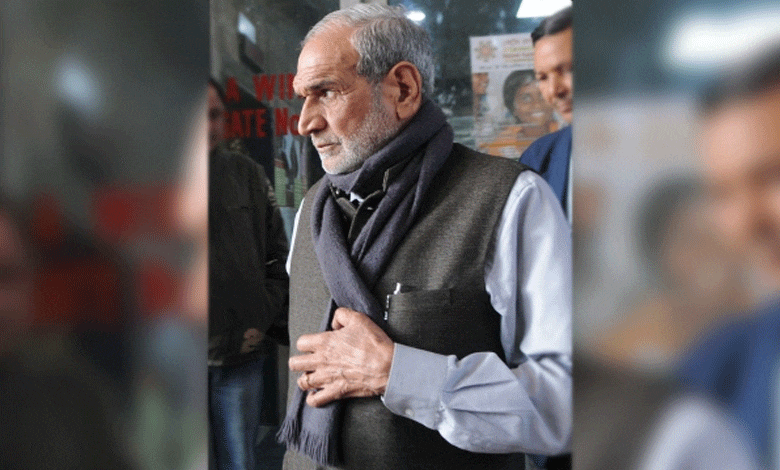Delhi Court Defers Judgment in 1984 Anti-Sikh Riots Murder Case Against Sajjan Kumar
A Delhi court has deferred the pronouncement of its judgment in a murder case against former Congress MP Sajjan Kumar, connected to the 1984 anti-Sikh riots, until February 12. The case revolves around the killing of a father-son duo in the Saraswati Vihar area on November 1, 1984, during the riots.

New Delhi: A Delhi court has deferred the pronouncement of its judgment in a murder case against former Congress MP Sajjan Kumar, connected to the 1984 anti-Sikh riots, until February 12. The case revolves around the killing of a father-son duo in the Saraswati Vihar area on November 1, 1984, during the riots.
Table of Contents
Court Delays Verdict in Murder Case Against Sajjan Kumar
Special Judge Kaveri Baweja, who was scheduled to deliver the verdict on Friday, postponed the decision to next week. The case involves the deaths of Jaswant Singh and his son Tarundeep Singh, who were murdered during the violent riots. The court had reserved its verdict on January 31 after hearing submissions from Public Prosecutor Manish Rawat.
Accusations Against Sajjan Kumar
Sajjan Kumar faces accusations of leading a mob responsible for burning alive the two victims, destroying their property, and inflicting severe injuries on their family members. The Special Investigation Team (SIT), which reinvestigated the case, has presented evidence that Kumar instigated and abetted the violence during the 1984 anti-Sikh riots.
During arguments, Advocate Anil Sharma, defending Kumar, claimed that the accused’s name was not initially mentioned and that there was a delay of 16 years in identifying him as an accused. Additionally, he noted that the case involving Sajjan Kumar’s conviction by the Delhi High Court was pending appeal before the Supreme Court.
In contrast, Additional Public Prosecutor Rawat argued that the victim had not initially recognized Kumar, but once she became aware of his identity, she named him as one of the perpetrators. Senior advocate H.S. Phoolka, representing the riot victims, claimed that police investigations were manipulated to protect the accused.
Delhi High Court’s View on 1984 Anti-Sikh Riots
Phoolka referred to a Delhi High Court judgment that labeled the 1984 anti-Sikh riots a “crime against humanity.” He emphasized that the case was part of a larger massacre in which over 2,700 Sikhs were killed in Delhi alone, as per official records. He further argued that these cases should be viewed within the context of the extraordinary situation during the riots.
Ongoing Legal Proceedings
Initially, an FIR was filed at the Punjabi Bagh police station, and the case was later investigated by a Special Investigation Team (SIT) formed based on the recommendations of the Justice G.P. Mathur Committee. The committee had advised the reopening of 114 riot-related cases, including the one against Sajjan Kumar.
On December 16, 2021, the court framed charges against Kumar under multiple sections of the Indian Penal Code (IPC), including charges of murder, arson, and conspiracy. The SIT’s investigation traced key witnesses, who provided critical testimony about the violence, including the mob’s actions, the destruction of property, and the physical harm caused to the victims.
Also Read: Shivakumar Slams US for ‘Shackling’ Indian Deportees: What’s the Real Story Behind It?

As the trial continues, all eyes are on the upcoming judgment, which could have significant legal and political ramifications in the aftermath of one of India’s darkest chapters of communal violence.
